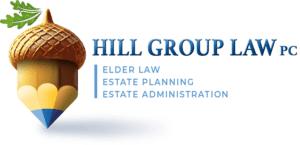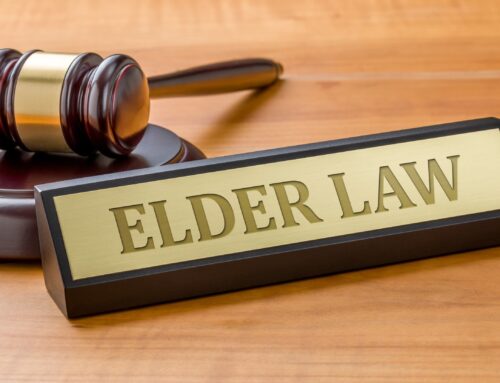Elder law is a specialized area of legal practice, encompassing the issues affecting the rapidly expanding aging population. It addresses a vast range of complex legal topics, from retirement planning and long-term healthcare to guardianship and estate planning. One key person involved in navigating these issues efficiently is an elder care attorney. Particularly, if you reside in Johnstown, an experienced elder care attorney in Johnstown can help you and your loved ones address these legal matters in a comprehensive and compassionate manner.
This blog will dive deep into elder law and how an elder care attorney in Johnstown can be a valuable resource to you.
What Is Elder Law and Who Does It Apply To
Elder law, as the name suggests, applies to elderly individuals and their loved ones who are facing legal issues related to aging. This field is expansive and covers a wide range of issues. Here’s how PA elder law attorneys can help you navigate these complexities:
- Long-Term Care Planning: PA elder law attorneys assist in planning for potential long-term care needs, including nursing home care. They can help you navigate the complex landscape of these types of care and the insurance needed to cover them.
- Estate Planning: These attorneys can assist in drafting wills, trusts, and other estate planning tools to protect your assets and ensure they are distributed according to your wishes upon your death.
- Guardianship: If an elderly person becomes incapable of making their own decisions, a PA elder law attorney can help establish guardianship to ensure they are taken care of.
- Medicaid Planning: PA elder law attorneys can also help with Medicaid planning, ensuring that the elderly can receive the benefits they are entitled to without being disqualified due to income or asset levels.
- Elder Rights Advocacy: An elder law attorney also advocates for the rights of the elderly, ensuring they are treated fairly in all legal matters.
Benefits of Consulting an Elder Law attorney
Consulting an elder law attorney in Johnstown can bring numerous benefits, particularly when navigating the complex legal landscape pertaining to aging. Here are several key advantages:
- Personalized Legal Advice: An elder law attorney in Johnstown can provide tailored legal advice based on your unique circumstances and specific needs, ensuring that you make the most informed decisions.
- Prevention of Future Legal Issues: They can anticipate potential legal challenges and help you address them proactively, reducing the likelihood of costly litigation in the future.
- Comprehensive Knowledge of Elder Law: An elder law attorney in Johnstown stays up-to-date with the latest changes in elder law and understands how various laws interact, which can be crucial for effective planning.
- Support during Difficult Times: The attorney will be at your side during challenging situations, providing necessary legal guidance, emotional support, and ensuring your rights are protected.
- Wealth Preservation: They can assist with estate and Medicaid planning to preserve your wealth, ensuring your loved ones are cared for after your passing.
- Advocacy: An elder law attorney in Johnstown stands up for the rights of elderly individuals, advocating for fair treatment in all legal matters.
Common Issues That Can Be Addressed in Elder Law
- Financial Exploitation: Elder law attorneys can help protect seniors from financial scams or exploitation, often a growing concern with age.
- Age Discrimination: Legal support can be provided to elderly individuals who believe they have been discriminated against due to their age.
- End-of-Life Planning: Attorneys can assist with crucial end-of-life decisions, such as medical directives and power of attorney documents.
- Dispute Resolution: Should disputes arise over guardianship, estates, or trusts, an elder law attorney can provide critical guidance and representation.
- Social Security Disputes: If issues arise regarding social security benefits, elder law attorneys can guide you through the process of appealing decisions or addressing other complications.
Important Documents and Legal Considerations for Seniors
As seniors navigate the complexities of elder law, there are several important legal documents and considerations that they should be aware of:
- Living Will: A living will outlines your wishes regarding medical treatment in case you become unable to communicate them due to illness or incapacity.
- Power of Attorney: This legal document allows you to appoint someone you trust to handle your financial and health decisions if you are unable to do so yourself.
- Last Will and Testament: Your last will and testament outlines how you want your assets distributed after your death.
- Trusts: These legal arrangements allow a third party, or trustee, to hold assets on behalf of a beneficiary.
- Healthcare Proxy: This is a legal document where you designate someone to make healthcare decisions for you if you are unable to make them on your own.
- Guardianship Designations: If you become unable to care for yourself, a designated guardian can make personal and financial decisions on your behalf.
- Long-Term Care Insurance: This insurance can assist in paying for long-term care needs that aren’t covered by regular health insurance, such as in-home care, assisted living, or nursing home care.
It can be overwhelming to consider all of these legal matters, which is why consulting with an elder law attorney can be incredibly beneficial. They can guide you through these complex issues and ensure that your interests and rights are protected.
How to Find a Qualified Elder Law Attorney
Finding a qualified elder law attorney can be a daunting task. However, the following tips can help streamline the process and ensure you find an experienced, trustworthy professional:
- Referrals: One of the most reliable ways to find an elder law attorney is through personal recommendations from friends, family members, or colleagues who have had a positive experience with a particular attorney.
- Professional Organizations: Check with professional organizations such as the National Academy of Elder Law Attorneys (NAELA) or local bar associations for directories of attorneys specializing in elder law.
- Online Search: Use online platforms like Google or LinkedIn to research potential attorneys. Look for ones with positive reviews and testimonials.
- Consultation: Once you have a shortlist, schedule consultations with each attorney to gauge their expertise and whether they’re a good fit. Be sure to ask about their experience with cases similar to your situation.
- Credentials and Specializations: Make sure the attorney is licensed to practice in your state and has specific experience in elder law. Special certifications or additional training in elder law are a plus.
- Fees and Services: Understand the attorney’s fee structure and what services are included. This will help avoid any surprises down the line.
About Us
The Hill Group can be your one-stop shop if you need premium services associated with several practice areas, including estate planning, Medicaid planning, special needs planning,estate administration, and elder law. We work for you, with you.
To know more, call us at (814) 245-3832, or send us a message via our contact form.





Leave A Comment
You must be logged in to post a comment.